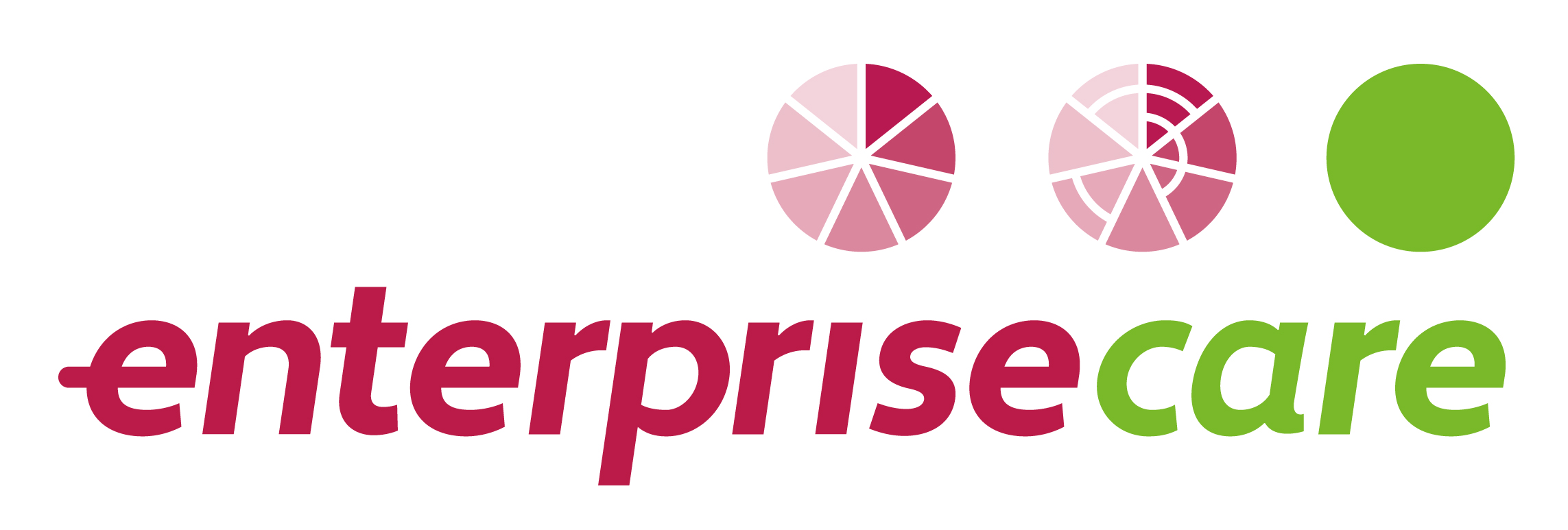Our Modern Reward Genie
A New Landscape is Revealed
In all of Enterprise Care’s 25 years of involvement in an annual NFP Remuneration survey & report, 2023 was unlike any other year.
The NFP remuneration landscape for managing salaries & rewards has dramatically changed.
So much has changed with the disruption of covid and subsequent rapid transformation occurring post covid. Widespread change in an organisation’s operating models as well as the ways of our staff working. This impact has played out in all aspects of an organisation’s practices, so it should not be surprising to learn it has also affected staff remuneration – the salaries & rewards programs that have for many years remained fairly stable in its structure and execution.
What Key Shifts Matter?
The most significant shift appears to involve devolving the personal responsibility for an individual’s own performance onto the individual themselves. Each is now presumed to hold the personal responsibility of not only their own performance but also to own what impact that might have on the team as a whole.
Already it is suggested that this shift has included demonstrable positive change in behaviours. The activities with links to this significant shift in the exercise of authority include ‘Pat Cummins spending time in the indoor nets at Edgbaston prior to start of play on the 5th day’, while others mentioned are optional warm-ups, as well as optional training sessions.
Existing Salary Approaches Seriously Challenged
In FY24 it is clear that NFP salaries & reward programs now need to navigate the following:
- openness to a more segmented approach to reward strategies
- greater focus on specific talent needs
- linkage of strategy with staff needs and sustainability requirements
- be more flexible in a remuneration program
- review salary structures to ensure it is fit for purpose in 2024
Being Prepared for Staff Queries
It is no longer safe to presume that staff will accept the grounds given for an organisation’s salary decision. More often now staff are prepared to query organisation’s salary decision.
And it is reasonable for this to occur as it now shines a spotlight on how and why remuneration decisions are made within an organisation. it requires more thought and linkage with the organisation’s strategy both in the short as well as the longer term.
When an organisation fails to properly address staff queries on remuneration, often they are not given a second chance, staff leave sometimes without a job to go to.
Reward Strategy
Enterprise Care suggests that there are 4 critical steps in assisting an organisation to achieve an ethical and defensible Reward Strategy.
1. Benchmark Your Salaries
It is helpful for organisations to annually benchmark their remuneration levels as part of good rewards practice. Following this, then they are in a position where this benchmarked salary data can be shared with staff that allows an objective measure to be a part of any salary review discussions. Offering an independent expert data source as a comparison point to staff creates a stronger trusting relationship. Also, staff have the opportunity to measure themselves which is important for their understanding of the basis of the allocation of rewards for what their role undertakes.
2. Establish Consistency
The aim is to have remuneration consistency across an organisation. This supports remuneration decisions being applied fairly, consistently, and equitably. It raises the focus for staff to be rewarded based on performance as well as real contribution to the organisation’s strategy and mission.
Importantly, this addresses any potential biases that may be otherwise present in remuneration decisions. The organisation can show that its salary decisions are not compromised by special arrangements or unjustifiable exceptions. It is squarely based on transparency and equitable principles.
A consistent approach allows management to build confidence among everyone and ensure employees, as well as managers, have great trust in the information and one another.
Finally, having consistent remuneration strategies facilitates attracting and retaining the right talent, as well as positively contributing to staff engagement and productivity. Employees’ motivation to give their best is strengthened when an organisation aligns its remuneration strategies with its values and strategic objectives.
3. Culture
As an organisation, what are the values that are underpinning the reward program and the decision making that flows from it.
Where transparency and honesty are a key part of your organisation then those core values are to be included as part of your organisation’s decision making. The organisation’s actions need to reflect the influence of its values in what are its decisions. Put rather simply, by aligning the reward systems with values and objectives, an organisation can create a culture of fairness, accountability, and high performance.
In addition, it is also re-enforcing an organisation’s efforts in attracting and retaining its top talent, and to improve employee engagement and productivity.
4. Communicate Effectively
Once the organisation has a professionally crafted reward program, then it can take the lead and communicate this to employees. Of course, the success of any communication will be shown by having employees confident in their understanding the basis of how rewards are determined both individually and organisation-wide.
Included in the communication ought to be how the reward program is reviewed, if regularly, then how often and the process of updating. Employees are keen to learn how the reward program might remain current as well as effective and aligned with the organisation’s values, strategies, and mission.
More conversations with more employees in most organisations is now a given. Rather than waiting for employees to initiate these conversations the organisation has a leadership opportunity to do so. Remuneration communications and conversations can be viewed as difficult and fraught with dangers. Ignoring it may well make it so, however, employees appreciate their organisation taking the lead in this space especially post covid.
All communications around salaries & recognition is best when open and honest about the compensation process as well as those elements that help to determine each person’s salary and overall remuneration. Don’t just talk about fairness and consistency, offer real examples of it being practiced.
Like so much else, remuneration has its own jargon and technical language. This is best to avoid and however it is expressed or communicated, the aim is for everyone to understand what it is and how it works. If unclear, employees may think that the organisation is trying to do something dodgy. Also, employees ought to have ready access to the remuneration information they may need to assist them in their own decision making.
Finally, flexibility has become a more important factor in an organisation’s decision making around their setting of remuneration.
Conclusion – “Fit for Person” Remuneration
Organisations now are expected to be alive to showing more regularly a genuine appreciation for the work, commitment, dedication, and successes of each employee.
Having a remuneration program that enables the organisation to tailor their decisions so that they are “Fit for Person” is essential. It is a formula that enables the organisation’s reward strategies to be a success in maintaining employee motivation, satisfaction, high performance, well-being, and ultimately organisational sustainability.
How we can help you
Enterprise Care has just released the latest FY24 remuneration data and insights setting up your talent strategy for success in 2024. In accessing reliable, market comparable benchmarks your organisation can confidently make decisions based on a quality data driven approach as part of your remuneration strategy.
Order your access now and check out how remuneration and incentives for NFP employees have significantly evolved over the past year.
We also provide specialist consulting where our experts provide a thorough report tailored to your organisation based on specific role descriptions and organisation profile. Contact us today to discuss how we can assist you.

